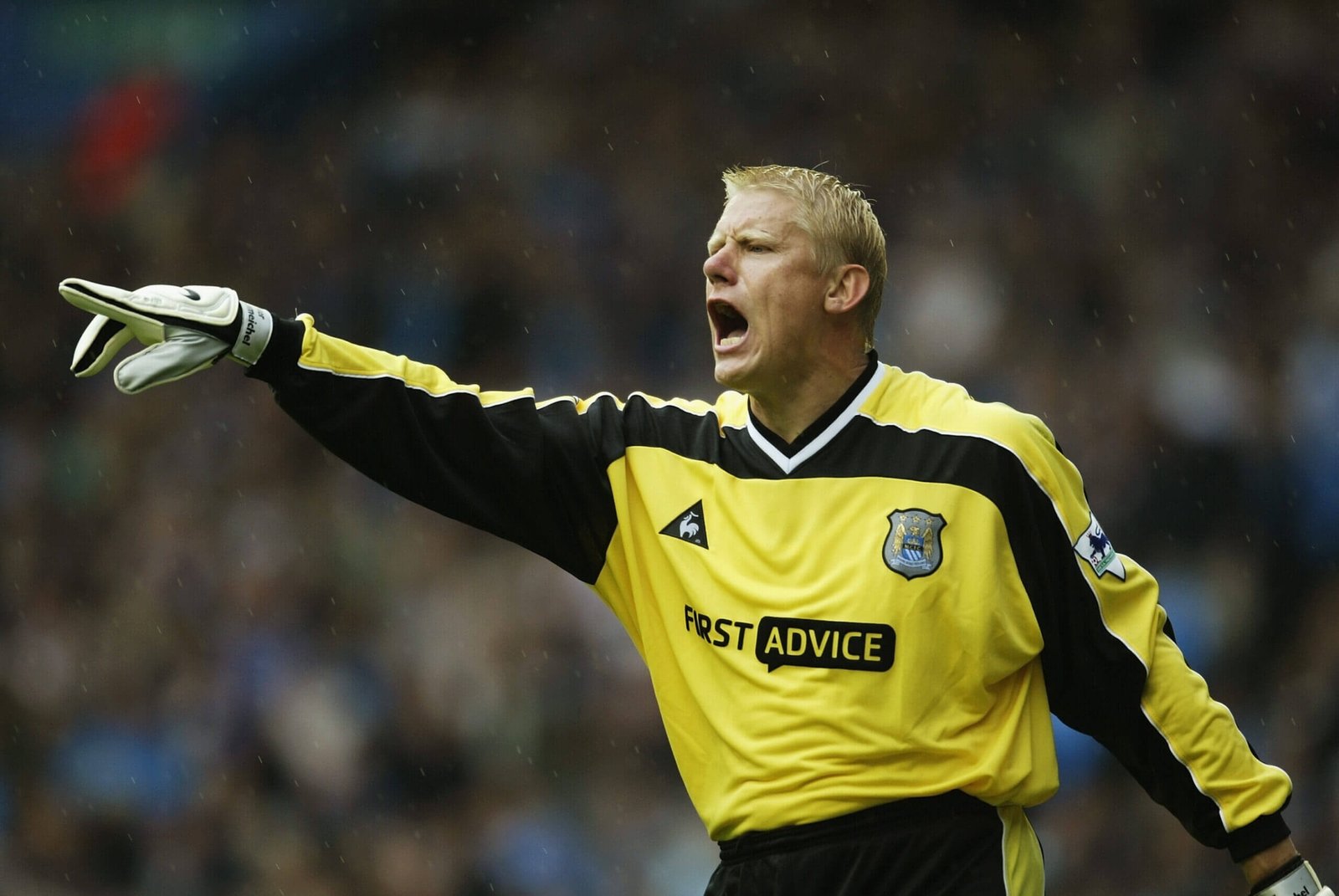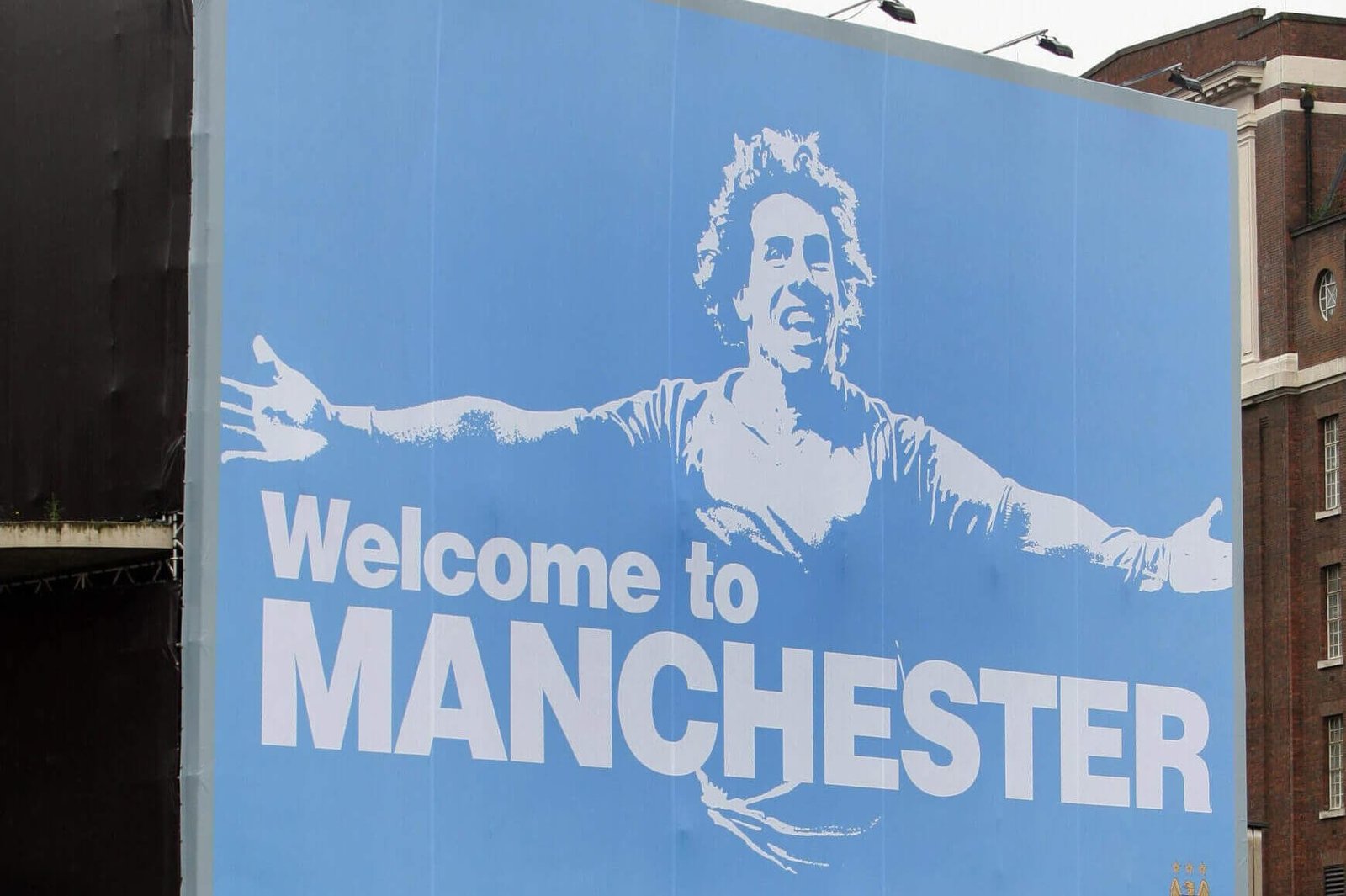Omar Berrada’s defection from one side of Manchester to the other is a huge coup for the red half of the city.
Manchester United’s new chief executive had become a key figure at City, rising through the ranks in the 13 years he was at the club to become their chief operating officer in 2016.
Berrada’s face may not be plastered over red “Welcome to Manchester” billboards but, who knows, if United are rejuvenated in the coming years perhaps his move may be seen as a pivotal moment.
Either way, it is not the first — and will not be the last — chapter of allegiance-changing in a rivalry that has yielded some delicious moments of one-upmanship over the years. Such as…
Forget how it turned out, forget the dream move turning into a nightmare with United starting legal proceedings against him for an alleged breach of contract for his Piers Morgan interview while Ronaldo said he didn’t respect Erik ten Hag. Forget him refusing to come on a substitute, forget… OK, there is a lot to forget.
But let us also remember how triumphant United were when Ronaldo returned to Old Trafford in 2021. Peter Schmeichel popped champagne on social media, even Roy Keane posted a sentimental picture of himself with a younger Ronaldo. It was a massive victory for United — with a sizeable chunk of tribalistic joy directed towards City.
Ronaldo during his second stay at United (Juan Manuel Serrano Arce/Getty Images)
There was ‘Agent Bruno’ Fernandes who helped persuade Ronaldo to reject City (sources at City later said they pulled out of a deal, but at United they suspected this was a face-saving exercise) and, of course, Sir Alex Ferguson who personally intervened to cajole Ronaldo towards Old Trafford.
“Well, honestly, it was close… It’s something they spoke (about) a lot and (Pep) Guardiola said two weeks ago, I guess, that they tried hard to have me,” Ronaldo told — well, who else? — Piers Morgan.
“I spoke with (Ferguson). He said to me ‘It’s impossible for you to come to Manchester City‘.
“And I say; ‘OK, Boss’. So I took the decisions and… it was a good decision.”
It wasn’t, but yes.
Carlos Tevez
Of all the players to play for both clubs in recent decades, the one who caused the most controversy was not Owen Hargreaves. No, it was a little guy from Fuerte Apache, Buenos Aires, whose transfer in 2009 was seismic.
So was the billboard.
“It’s City, isn’t it?” Ferguson said of the “Welcome to Manchester” poster plastered opposite Manchester Arena.
“All they can talk about is Manchester United. They can’t get away from it. That arrogance will be rewarded. It is a go at us, that’s the one thing it is. They think taking Carlos Tevez away from Manchester United is a triumph. It is poor stuff.”
Carlos Tevez [2012]:
“It seems like Ferguson is the president of England. When he speaks badly about a player, nobody says he has to apologise but when someone comes out with a joke [‘RIP Fergie’ sign], you have to say sorry. I don’t say sorry.” pic.twitter.com/Jb9Uq4UyMj
— City Report (@cityreport_) May 4, 2021
Ferguson was wrong: it was a triumph.
Tevez helped City win the FA Cup two years later and the Premier League in 2012 — i.e, the start of it all.
The Argentine held an “RIP Fergie” banner during the title celebrations, a year later the Scot retired and United have been on a downward slope ever since while City have conquered England, Europe and the world.
Tevez may not have played a huge role in that — there is no statue of him outside the Etihad — but the symbolism of his move from red to blue cannot be downplayed at a time when the balance of power was starting to shift after decades of City being in the wilderness.
Ferguson had called City’s stadium the “Temple of Doom”, United’s fans displayed a permanent banner stating how many years it had been since City last won a trophy (which would reach 35) and some of them once held a celebration in the city to mark 25 years of that drought.
No more.
Wayne Rooney
City went about hiring and signing the best in the business around this time but Rooney, the ultimate modern-day United great, could not be swayed to follow Tevez.
There was no doubt he thought long and hard about leaving United in 2010. Chelsea, Real Madrid and Barcelona were very interested, as were City, but Rooney could not quite allow himself to be accused of the treachery and greed motivations that were levelled at Tevez.
Rooney had handed in a transfer request, befuddled at what he saw as United’s lack of ambition at the time. But after protests outside his house and the offer of a huge pay rise and a shiny new five-year contract, Rooney changed his mind.
Ferguson’s assistant at the time, Rene Meulensteen, suggested Ferguson would never have allowed Rooney to join the noisy neighbours.
“I think the thing that hurt Sir Alex more than anything was the fact that Manchester City were the club linked with him,” Meulensteen later said. “Wayne was 25 — still ready to reach the peak of his career and with all of these trophies already won.
“Sir Alex would not have wanted to lose a battle of prestige with Manchester City, and he had to do everything to keep Wayne.”
Peter Schmeichel
Schmeichel was a legendary player at United, the rock on which their incredible success in the 1990s was built. He was probably the best goalkeeper in the world at the time and certainly the best, or at least the most revered, in United’s entire history.
He sort of retired in 1999, doing so on the highest of highs by helping them win the treble of the Premier League, FA Cup and Champions League. What a way to bow out. Legacy assured forever.
He ended up at Sporting the following season, saying the top level of English football with its 60-game seasons was too exhausting. Fair enough.
Except that Schmeichel then left Portugal to play for Aston Villa. OK, they aren’t in European competition, nice way to end your career, maybe. But then the following season (2002-03) up pops Schmeichel at… Manchester City.

Schmeichel at City in 2002 (Alex Livesey/Getty Images)
City were still irrelevant to United as a football rival, in the latter end of their doldrum years before the money arrived in 2008, but Schmeichel’s choice of club was seen as traitorous. He must have taken some persuading then, given the emotion of the decision involved? Nah, a 20-minute conversation was all it needed according to then-City boss Kevin Keegan.
No wonder Gary Neville, the ultimate Red, didn’t fancy shaking Schmeichel’s hand in the tunnel before the next Manchester derby (which City on 3-1).
“You can’t play for Manchester City,” Neville later said. “I’m a United fan and I can’t play for Manchester City, I can’t play for Leeds and I can’t play for Liverpool.
“That’s just written in stone. You just don’t play for those clubs, irrespective of what happens.”
Denis Law
The OG defector. Denis Law is one of United’s all-time heroes, part of the United trinity with Sir Bobby Charlton and George Best who won it all in the 1960s with style and swagger, a player who is third (with 237 goals) on the United all-time scoring list behind just Charlton and Rooney.
But in 1973 an ageing Law was given a free transfer by an ailing United, who were struggling in the post-Sir Matt Busby era.
They were struggling so much that with two games to go of the following season, they were heading for relegation. Their opponents on the penultimate weekend? City, of course, who now had a 34-year-old Law in attack.
United had to win at Old Trafford to keep their survival hopes alive and with the score at 0-0 with a few minutes left, Law stuck a cute backheel into the corner. He didn’t celebrate and was substituted immediately afterwards. It was his last-ever touch of a football in a league match.
Law’s goal technically did not relegate United. Given results elsewhere, even if United had won their final two games they would not have stayed up. But let’s not allow the facts to get in the way of a great Manchester derby story — the ultimate one-upmanship for the blue half.
Read the full article here


